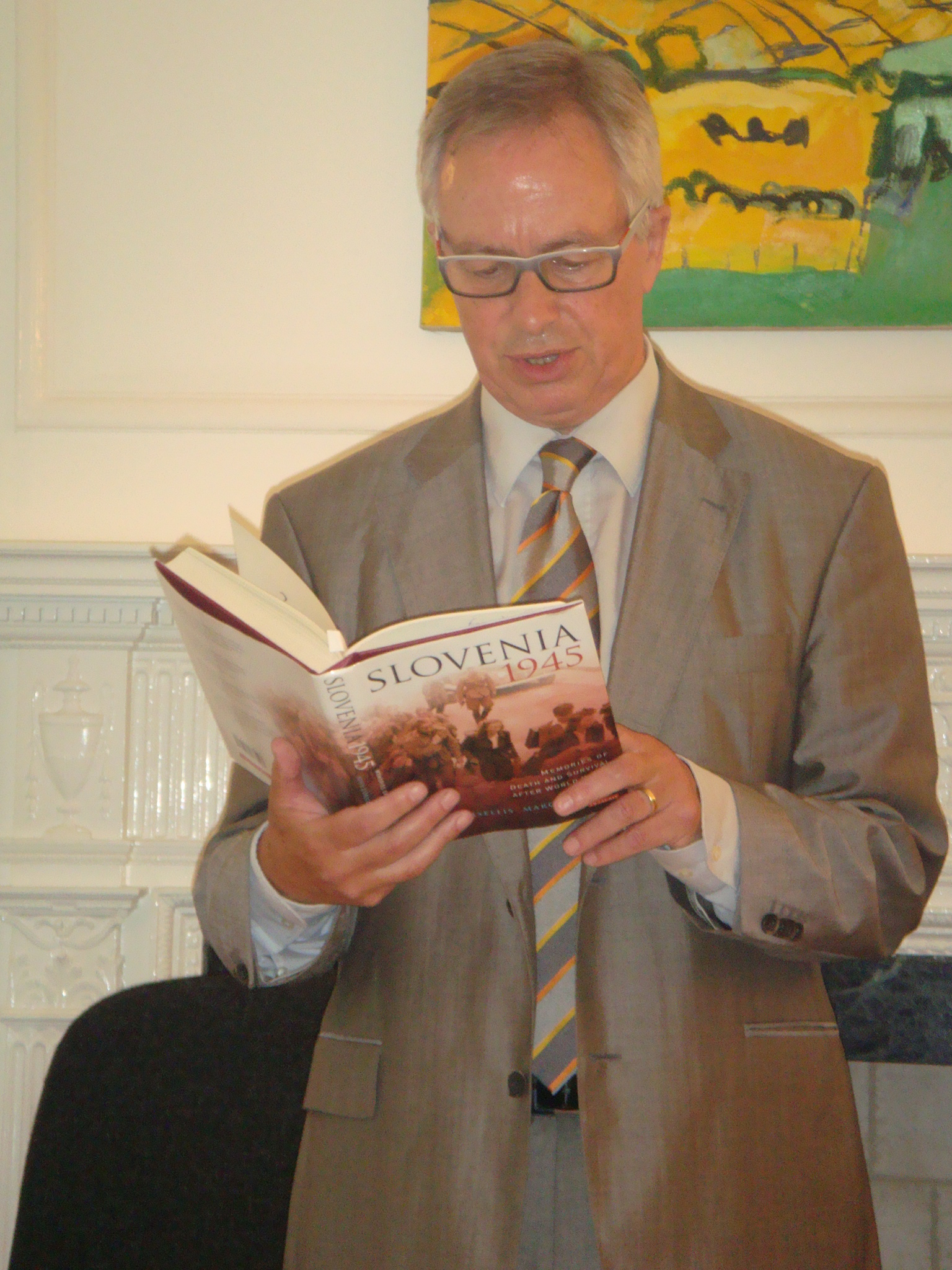 Diana Poberaj wrote this report about a talk given by Marcus Ferrar at the British-Slovene Society Annual General Meeting in London on 21 June 2013:
Diana Poberaj wrote this report about a talk given by Marcus Ferrar at the British-Slovene Society Annual General Meeting in London on 21 June 2013:
I was very moved how, in the final chapter of his book about Germany, A Foot in Both Camps, Marcus Ferrar describes how he wrote in the visitors’ book of the church in Dresden destroyed by the British air force in February 1945 and now restored: ” When my turn came, I wrote in the book, ‘ I am British. I am sorry my people destroyed this church. It should never have happened. ‘”
The following paragraph, ending with the choice for peace over a penchant for war, is a sentiment echoed in the hearts of so many people, desperately searching for a route to reconciliation.
In his lecture, Marcus demonstrated his level of understanding of human conflict, how he understood the position of families separated by political threads endorsed by a position of no return, either on one side or the other. This is a huge burden for a new country. It faces huge challenges in a situation where there is no homogeneity.
He gave illustrations of where compassion and forgiveness had triumphed and led to peace of mind and heart.
Marcus spoke about the book Slovenia 1945, written by John Corsellis and Marcus himself. He reflected on how moved John Corsellis was by his personal experiences and observations of the suffering of prisoners which culminated in the massacre of 12, 000 Slovene soldiers upon their enforced return to former Yugoslavia.
His latest book, The Budapest House, due out this autumn, centres on the emerging story of a young girl in a boarding school in Switzerland, who at the age of thirteen discovers that she is Jewish. She is aghast and destroys a much treasured photograph of her parents. Her story moves on to her eventual inheritance of a flat in Budapest, the remnant of a building originally owned by her father.
Her tenant, himself a Jew, had been a member of the secret police and had participated in the torture of prisoners. Although he leaves the apartment eventually after some pressure to go, she questions herself and her soul about the flat and the implications of this inheritance. She has been sent back to Budapest by George Soros to help with privatisation of the state publishing system. It is at this time that Marcus Ferrar met her and encouraged her to allow him to write and publish her story.
Marcus commented in depth about the history of Hungary and reflected on their own genocide, that of their own citizens who helped to carry out sending Hungarian Jews to certain death. He went on to say that anti-Semitism is still part of a mind-set of a proportion of the population. Coupled with demands from some quarters for the return of Greater Hungary territories, there are still political and social issues which pervade and shape it’s modern history.
Marcus gave place in his lecture to Willy Brandt, the German Chancellor of reconciliation, and his prostrate figure kneeling before the Jewish Memorial in Warsaw. The impact of that picture worldwide was mind-blowing. Germans have been far more ready to accept their responsibility for the genocide of so many, they have done their ‘mea culpa’.
Britain’s inclination towards belligerency led to the relentless bombing of German towns at the end of the Second World War. It is still lodged in the minds of those who suffered it.
His simple offer of an acknowledgement of sorrow over the destruction of Dresden and its beloved church is what impressed a woman witness to history the most. That apology should be the inheritance of all children and people worldwide, because it is the wellspring of hope for the future of all countries in conflict.
